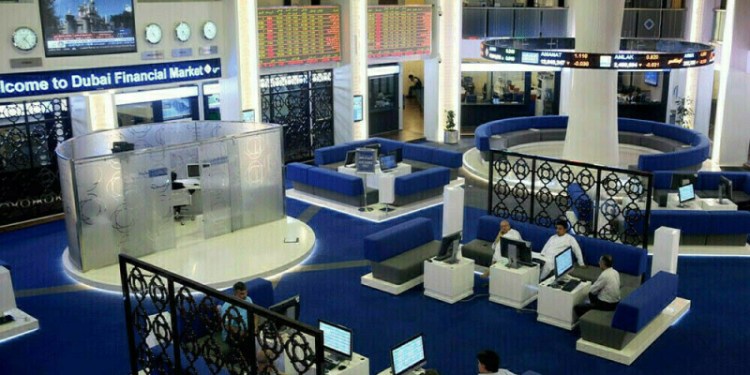
© Reuters. FILE PHOTO: Turkey-flagged bulk carrier Tq Samsun leaves the sea port of Odesa, amid Russia’s attack on Ukraine, in Ukraine July 16, 2023. REUTERS/Serhii Smolientsev
JPM
+2.45%
Add to/Remove from Watchlist
Add to Watchlist
Add Position
Position added successfully to:
Please name your holdings portfolio
Type:
BUY
SELL
Date:
Amount:
Price
Point Value:
Leverage:
1:1
1:10
1:25
1:50
1:100
1:200
1:400
1:500
1:1000
Commission:
Create New Watchlist
Create
Create a new holdings portfolio
Add
Create
+ Add another position
Close
By Michelle Nichols and Guy Faulconbridge
UNITED NATIONS/MOSCOW (Reuters) -A deal allowing the safe Black Sea export of Ukraine’s grain for the past year expired on Monday after Russia quit and warned it could not guarantee the safety of ships in a move the United Nations said would “strike a blow to people in need everywhere.”
Moscow suggested that if demands to improve exports of its own grain and fertilizer were met it would consider resurrecting the Black Sea agreement. However, U.N. Secretary-General Antonio Guterres said that a U.N. pact that helped Russia to make shipments over the past year was also terminated.
“Only upon receipt of concrete results, and not promises and assurances, will Russia be ready to consider restoring the deal,” said Russia’s foreign ministry.
Russia told the U.N. shipping agency – the International Maritime Organization (IMO) – that its “guarantees for the safety of navigation” had been revoked and that “proactive necessary actions and response measures to neutralize threats posed by the Kiev regime in the area will be taken.”
Insurers on Monday were reviewing whether to freeze cover for any ships willing to sail to Ukraine. The reaction on the grains market was modest, with U.S. wheat futures up about 3% while U.S. corn futures rose nearly 1%.
“I think there is market belief that Russia and the EU have large supplies of wheat which can meet world demand in the coming months, with harvests arriving,” one German trader said.
The Black Sea deal was brokered by the U.N. and Turkey in July last year to combat a global food crisis worsened by Russia’s February 2022 invasion of Ukraine. Ukraine and Russia are among the world’s top grain exporters.
Ukrainian President Volodymyr Zelenskiy said on Monday everything must be done so that the Black Sea grain export corridor continues to be used, his spokesperson said.
“Today’s decision by the Russian Federation will strike a blow to people in need everywhere,” U.N. chief Guterres told reporters.
The U.N. would continue trying to ensure unimpeded access to global markets for food products and fertilizers from Ukraine and Russia, Guterres said.
U.S. Ambassador to the United Nations, Linda Thomas-Greenfield, described Moscow’s move as an “act of cruelty.”
LAST SHIP HAS SAILED
Nearly 33 million metric tons of corn, wheat and other grains have been exported by Ukraine under the arrangement. The last ship left Ukraine under the deal on Sunday.
To convince Russia to agree to the Black Sea deal, a three-year memorandum of understanding was struck in July 2022 under which U.N. officials agreed to help Russia get its food and fertilizer exports to foreign markets.
Russia’s main demands were the resumption of its ammonia exports through a pipeline to the Ukrainian port of Odesa and the reconnection of its state agricultural bank Rosselkhozbank to the SWIFT international payments system. It was cut off by the European Union in June last year after the invasion.
Guterres said on Monday that the U.N. had managed to create a “bespoke payments mechanism” for the Russian Agricultural Bank through U.S. bank JPMorgan Chase & Co (NYSE:JPM) and “recently brokered a concrete proposal” with the European Commission to enable a Rosselkhozbank subsidiary to regain access to SWIFT.
But he signalled that all those efforts would end because Russia’s withdrawal from the Black Sea deal also terminated its pact with the U.N. on its own exports, under which Moscow had committed to “facilitate the unimpeded export of food, sunflower oil, and fertilizers from Ukrainian-controlled Black Sea Ports.”
GLOBAL HUNGER
Guterres had made a final attempt to save the Black Sea grain deal by writing to Russian President Vladimir Putin on Tuesday last week to ask him to extend it in exchange for the cooperation of the European Commission on Rosselkhozbank.
In a letter to Guterres on Monday, Russia said the options presented “are not feasible and will not ensure uninterrupted cross-border financial transactions,” Russia’s deputy U.N. envoy Dmitry Polyanskiy posted on Twitter. He said the letter informed Guterres that Moscow was terminating the Black Sea grain deal.
European Union Commission President Ursula von der Leyen called Russia’s decision a “cynical move”, adding that the EU would continue to work towards ensuring food security for poor countries.
Turkish President Tayyip Erdogan said he believed Putin wants the continuation of the deal, adding that he will discuss it when they meet in person in August.
Russia had agreed three times in the past year to extend the Black Sea deal, but also briefly suspended its participation at the end of October in response to a drone attack on its fleet in Crimea.
There was concern about the impact the expiry of the pact would have on feeding the hungry worldwide.
Under the deal, the U.N. said its World Food Program (WFP) has procured 80% of its wheat so far in 2023 from Ukraine – up from 50% in 2021 and 2022. The WFP has shipped about 725,000 metric tons of Ukrainian wheat to Afghanistan, Sudan, Djibouti, Ethiopia, Kenya, Somalia and Yemen to fight hunger.
“Rations are being cut to children every day now across the world – it is utterly dramatic and this (deal) was one of the few glimmers of hope in this age of Biblical starvation,” said Jan Egeland, Secretary General of the Norwegian Refugee Council.
Source: Investing.com




























